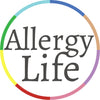|
About the FAIR Taskforce Survey
Introduction
Food allergy affects 6% of children and young people in Europe. Food avoidance is the management cornerstone. However, it requires constant vigilance to keep safe. This, along with anxiety due to fear of reactions, social and dietary restrictions, has a major impact on patients' and families’ Health-Related Quality of Life. The European Regulation (EU) No 1169/2011 implemented in 2014 mandates allergen information on 14 important food allergens in pre-packed foods and food providers. This involved a significant advance in safety for food-allergic consumers. However, accidental reactions and fatal anaphylaxis continue to occur.
Patients and families often encounter issues contributing to accidental reactions such as suboptimal preparedness for avoidance by patients and families partly due to limited access to specialists/educational resources, limited awareness/training by childcare/education/food providers, non-disclosure of allergens or non-adherence to regulations by food business operators. The factors contributing to accidental exposure in children and adults with food allergies in Europe upon implementation of the 2014 Regulation have not been fully studied, and little is known about patients’ and parents’ perspectives on their reality to keep safe across regions.
This knowledge is even more scarce when it relates to other countries with less strict or no specific allergen disclosure regulations, such as some South American countries and other regions like the United States, Canada, and Australia.
Additionally, the acute management of anaphylaxis, a severe form of an allergic reaction, requires immediate adrenaline administrator to optimise health outcomes. In the community, this is done by using an adrenaline autoinjector that at-risk patients should carry at all times. Availability and correct use of adrenaline autoinjectors are major barriers for effective treatment of breakthrough anaphylaxis. This is partly due to fear of using an injectable device. An adrenaline nasal spray has been recently approved by US (FDA) and European authorities (EMA) for the management of anaphylaxis, based mainly on pharmacokinetic data in individuals in baseline conditions. This new product is expected to be available for prescription in the US, Europe and UK in 2025. Sublingual adrenaline tablets are also in development. Whilst having a less invasive alternative for adrenaline administration in anaphylaxis can very attractive, questions remain in crucial aspects such as its effectiveness in anaphylaxis compared to existing adrenaline autoinjectors.
Importantly, patients and parents’ perspectives on this new adrenaline nasal spray have not been explored. Patients and families have often been reliant on adrenaline autoinjectors for many years. The researchers anticipate this significant change in route of administration will prompt many questions that will need to be answered for patients and families to trust this new treatment approach. The researchers believe it is vital to capture patients’ and families’ views and information needs at this early stage of this new treatment to help shape future research and clinical practice in this area to meet patients’ needs.
Aims
In parents of children with IgE-mediated food allergy and young people and adults with this condition from across Europe, North America, and South America, this project aims to assess: 1. Circumstances associated with accidental reactions; 2. Young people, adults and parents’ education and preparedness for making safe food choices; 3. Young people, adults and parents’ challenges and perceptions regarding adherence to regulations by food providers and awareness in the community. 4. Young people, adults and parents’ perspectives on a newly approved nasal adrenaline spray for the acute treatment of anaphylaxis in the community.
Methods
This is a cross-sectional observational study using an online survey for parents of children with IgE-mediated food allergy, and young people (aged 16 and above) and adults with this condition.
- The survey will be hosted in the Qualtrics platform and it includes a first part with sections on background information, accidental reactions to foods, support and advice received to manage food allergy, challenges faced when trying to make safe food choices, quality of life and, an optional second part on perceptions about eating out, shopping, the education setting and travelling.
- It is expected to take approx. 10-15 min to complete part 1 and approx. 10 min to complete part 2.
- The survey will be translated into 18 Languages (French, German, Spanish, Portuguese, Brazilian Portuguese, Italian, Greek, Polish, Turkish, Dutch, Hungarian, Romanian, Bulgarian, Finish, Swedish, Norwegian, Danish) and disseminated in a range of countries (UK, Ireland, France, Spain, Portugal, Germany, Austria, Switzerland, Italy, Greece, Turkey, Poland, Finland, Sweden, Norway, Denmark, Iceland, Brazil, Colombia, Argentina, Chile, United States, Canada, Australia, Mexico, Hungary, Romania, Belgium, Bulgaria) through the EAACI Patients Organisations Committee, the European Federation of Allergy and Airways Diseases Patients' Associations, selected Universities staff/students, the National Allergy Societies (NAS) linked to EAACI and other selected patients organisations, communities and Allergy Societies as needed. Dissemination will be done via newsletters, email and/or social media, as appropriate. Descriptive analysis of the results and comparative analysis of key outcomes across countries will be conducted.
Expected impact
This work will provide valuable information into families and patients’ real-life challenges and concerns when trying to stay safe. This will help inform future outreach/educational/support strategies developed with patients’ representatives/organisations to tackle unmet needs and ultimately minimise exposure risk, facilitate safe inclusivity and enhance health-related quality of life.
Additionally, understanding patients' and parents' views and information needs at this early stage of the newly approved nasal adrenaline treatment will help shape future research and clinical practice to address patients' needs.
How the study runs
People are invited to fill in an online anonymous survey via a link. The survey has 3 parts and it takes 10-30min to complete.
- The questions will cover, in the survey part 1, some background information about their food allergy, recent accidental reactions, the support and advice received from healthcare professionals to manage food allergy, challenges faced when trying to make safe food choices and quality of life. This is expected to take approx. 15 minutes to complete.
- Then, in part 2, questions will cover their views about making safe food choices when eating out, shopping, travelling or when in the education or work setting. This is expected to take approx. another 10 minutes to complete.
- Then, if participants they been prescribed an adrenaline autoinjector, they will be invited to complete an optional part 3 where they can share their views on a new nasal adrenaline spray that has been recently approved in USA and Europe. This is expected to take approx. another 5 minutes to complete.
The researchers highly encourage participants to complete the 3 parts in the survey, as they will provide us with very valuable information about areas to improve to help people living with food allergy when trying to keep safe and avoid allergic reactions.
Eligibility and who can join
As above, the survey is suitable for parents of children with food allergies AND/OR people aged 16 and above with food allergies. There are different survey links for parents vs adults/young people.
Interested participants cannot take part in the study if they have:
- A history of severe or uncontrolled asthma within the past six months
- Any clinically significant liver, kidney, cardiac or mast cell disease or uncontrolled chronic disease
- Received food allergen immunotherapy treatment or participated in a similar study in the past 12 months
How to Join
The survey can be accessed via the following links:
- YOUNG PEOPLE AND ADULTS SURVEY- Click here to join (External Link)
- PARENTS & CARERS SURVEY- Click here to join (External Link)
End date for joining: 21 April 2025
Where to find further information
- Study Contact Name: Dr Marta Vazquez-Ortiz, MD PhD
- Study Contact Email: m.vazquez-ortiz@imperial.ac.uk

This information was provided to Allergy Life Australia by Imperial College London. This Page was last updated on 20th March 2025.
Allergy Life Australia highlights allergy research studies and trials being conducted to keep the community informed. Unless detailed, Allergy Life Australia is not affiliated with any of the allergy research studies and trials listed and does not endorse or sponsor them. All study details, including eligibility, participation, and outcomes, are managed entirely by the respective study organisers or institutions. For specific questions or concerns regarding a study, please contact the organisers directly. Participation in any allergy research study and trial is voluntary and at your own discretion.




